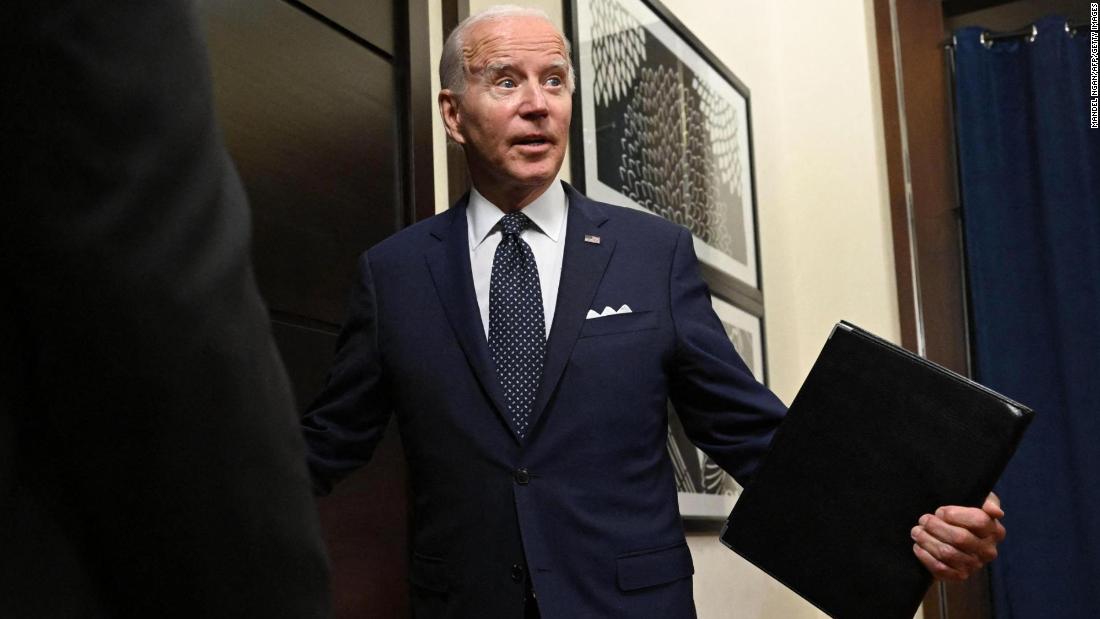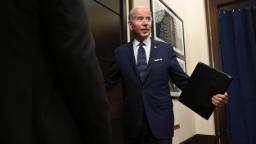

The President will also announce that Gulf Arab leaders are pledging over $3 billion over the next two years in projects that align with global infrastructure and investment.
Biden held several bilateral meetings with leaders from Iraq, Egypt and the United Arab Emirates, and is scheduled to participate in a GCC+ 3 summit on Saturday. The GCC+ 3 is made up of the Gulf Cooperation Council (GCC) — an alliance of Saudi Arabia, Kuwait, the United Arab Emirates, Qatar, Bahrain and Oman — plus Egypt, Iraq and Jordan.
Large parts of the region have been embroiled in economic turmoil in recent years exacerbated by the pandemic. Russia’s invasion of Ukraine and Moscow’s stifling of Ukraine’s vast wheat exports have also pushed much of the Middle East and North Africa to the brink of wide-scale food insecurity.
National security adviser Jake Sullivan told reporters on Friday that Biden will cover a wide range of issues in his meetings, “from security to economics, to regional integration, to cooperation on the big global challenges of our time, to human rights and forcefully advocating for America’s values and for the President’s personal priorities.”
He said the trip to Israel and Saudi Arabia was designed to ensure “the United States was firmly planting its flag in this region for the long term,” and not allow China or Russia to fill a leadership vacuum. It comes a year after the US withdrew all US troops from Afghanistan and ended 20 years of war with the Middle Eastern country.
The US declassified an intelligence report last year that concluded bin Salman approved the killing of Saudi journalist and Washington Post columnist Jamal Khashoggi. Despite once vowing to make Saudi Arabia a “pariah” on the world stage, Biden fist bumped the Crown Prince upon greeting him in Jeddah ahead of their meetings. Fellow Democrats and others decried the gesture as too friendly and said it sent the wrong message.
Biden later told reporters he raised Khashoggi’s killing directly with bin Salman and said he believed the Crown Prince was responsible.
He was met with Saudi pushback, according to a source familiar with the matter. The Crown Prince, the de facto ruler of the kingdom, told Biden any attempt to impose values on another country was viewed as counterproductive to the relationship. He then noted that there have been incidents, including the abuse of prisoners by US military personnel at Abu Ghraib prison in Iraq, that reflect poorly on the US.
The recent killing of Al Jazeera Shireen Abu Akleh in the West Bank and the US response, which has drawn criticism from Abu Akleh’s family, was also brought up by the Saudi side, the source said.
Senior administration officials on Saturday defended the trip as an opportunity to raise concerns about the kingdom’s rights record with the Saudi crown prince. It would have been “backsliding if the president didn’t come to the region and it would be backsliding if he didn’t and wasn’t willing to sit and raise human rights concerns with foreign leaders around the world,” an official said.
But White House officials say the President won’t be returning to Washington on Saturday with explicit oil production increases. The expectation is that there will be increases in the months ahead — done within the context of increased output levels in the OPEC+ cartel laid out at its August meeting.
Responding to a question on Saturday about the possibility of a widely anticipated Saudi-Israeli normalization agreement, an official said “it’s going to take some time.”
The Biden administration has for months sought to formalize security and economic deals between Saudi Arabia and Israel, in a bid to set the stage for a normalization deal between the two countries.
Riyadh is believed to have a covert relationship with Israel but has yet to officially disclose those diplomatic ties. In 2020, then-Israeli Prime Minister Benjamin Netanyahu reportedly flew to Saudi Arabia for a covert meeting with the kingdom’s de facto leader, Crown Prince Mohammed bin Salman — a claim that was denied by Riyadh’s top diplomat.
A possible normalization between Israel and Saudi Arabia has been hailed as the “crown jewel” of agreements between the Jewish state and the Arab world. The United Arab Emirates, Bahrain, Morocco and Sudan normalized relations with Israel in 2020 as part of a wave of agreements at the end of former President Donald Trump’s term.
CNN’s Phil Mattingly and Allie Malloy contributed to this report.
